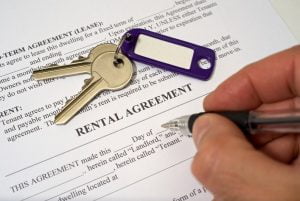Who Pays For Bed Bug Removal: Renter Or Landlord?
Go Back To Previous PageIf you have ever experienced the problems of bed bugs, you already know that getting these pests is terrible. Bed bugs are one of the most problematic types of pests to exterminate. To make matters worse, they bite and cause terrible, itchy sores. Sometimes, bed bug bites can cause nearly-lethal reactions to people with sensitive bodies. Bed bugs are not only easy to get, but they are even easier to spread. Worse, noticing an infestation is hard until after they’ve already bitten you and multiplied. When you face them, you will have to get rid of them. Sometimes, you might be dealing with a recurring hazard that could damage your home. What does bed bug removal cost, and how do we remove bed bugs?
one of the most problematic types of pests to exterminate. To make matters worse, they bite and cause terrible, itchy sores. Sometimes, bed bug bites can cause nearly-lethal reactions to people with sensitive bodies. Bed bugs are not only easy to get, but they are even easier to spread. Worse, noticing an infestation is hard until after they’ve already bitten you and multiplied. When you face them, you will have to get rid of them. Sometimes, you might be dealing with a recurring hazard that could damage your home. What does bed bug removal cost, and how do we remove bed bugs?
Could My Landlord Be Liable For Bed Bug Damage?
Signs of bed bugs remain a significant health hazard. In New York City, a home with a severe pest infestation is against the city’s building code. This means that NYC landlords are responsible for inspecting and exterminating bed bugs in their apartments.
This is true regardless of what sparked it, especially when bed bugs hide in cracks and crevices.
What Does The New York City Building Code Say About Bed Bugs?
Bed bug infestations are a Class B building code violation.
This means that the New York City Housing Board finds this to be a severe insult to the livability of a person’s home.
livability of a person’s home.
To help ensure the livability of New York apartments, the city has a strict policy about these bugs:
- The bed bugs are the renter’s fault. It doesn’t matter if you brought them in, and it’s the landlord’s burden to get rid of them, full stop.
- The landlord has 30 days to get rid of the bed bugs, and this deadline means they have to start working within those 30 days. Most bed bug control methods require additional upkeep, but the first 30 days tend to be when treatments begin.
- If the landlord does not address the bed bug issue in 30 days, you have the right to withhold rent or break the lease, which is a breach of contract. Ergo, you can stand up for yourself legally or even sue your landlord.
How Much Does Bed Bug Removal Cost?
How much does it cost to kill bed bugs and bed bug eggs in an infested room? Bed bug removal and remediation are never cheap in New York City.
Though the laws are strict, remediation and extermination can cost a lot. The initial consultation costs between $50 and $150.
From there, the price of bed bug removal & remediation can range from an additional $75 to upwards of $600. It’s worth noting that many bed bug cases tend to require more than just one treatment method. If you have a severe issue with bed bugs, you might need to pay as much as $2000 or more.
When Do You Have A Right To Sue Your Landlord For Damages?
In New York City, renters have better rights than in other parts of the country. However, that doesn’t mean that you can sue your landlord willy-nilly. The best way to determine if you have a right to sue your landlord is to call a real estate lawyer. There’s a decent chance that you may have a right to sue your landlord for bed bug-related damages if they didn’t help in time and any of the following is true:
- You or someone in your family had severe injuries or problems because of bed bugs. Did you know that bed bugs can cause paranoia, confusion, and hallucinations? It’s true. If you notice serious mental health issues as a result of them or if you had a severe rash that resulted in a hospital trip, you may have a lawsuit-ready cause.
- The bed bug infestation caused you to lose serious money. Did you get a bad review on Airbnb when renting your co-
 op? Or did you somehow have to leave the house to get the bed bug treatment done, causing you to miss work? You might have a reasonable suit. Removing bed bugs is complex, and bed bug removal costs are steep.
op? Or did you somehow have to leave the house to get the bed bug treatment done, causing you to miss work? You might have a reasonable suit. Removing bed bugs is complex, and bed bug removal costs are steep. - Items that were precious to you were destroyed as a result of infestations. You might also have a case if you had to remove your mattress or a significant work of art.
How Can You Tell If A Place You Want To Rent Has Bed Bugs?
They know whether a place has a reputation for pests. Deal with a savvy real estate agent who knows your area. They usually know about issues with buildings that other people won’t.
If you want Internet sleuthing, the best thing you can do is look up the National Bed Bug Registry. This registry can tell you if a building in the area has reported bed bugs in the past, which can be beneficial.
Report the Bed Bug infested areas to Your Landlord.
Contact your landlord or manager immediately if you suspect a bed bug infestation in your unit or building. Your landlord should hire a qualified exterminator to inspect for and measure the concentration of bed bugs in your rental. Before any exterminator enters your unit, your landlord should give you proper notice of entry.
Some states have specific laws on the books about landlords’—and tenants’—duties regarding bed bug infestations. For example, state laws might require tenants to take steps such as:
- Report a possible infestation within a specific time—usually 24-48 hours—after discovering it.
- Reasonably cooperate with the landlord’s extermination efforts.
- Comply with any particular control measures the landlord puts in place.
What are the landlord’s responsibilities regarding pest control?
Title 27 – Chapter 2 of New York City’s Housing Maintenance Code states: “An owner of a dwelling shall take reasonable measures to keep the premises free from pests[…] and shall expeditiously take reasonable measures to remediate such conditions and any underlying defects[…]” (§27–2017.1)
In layman’s terms, the landlord is responsible for practicing “Integrated Pest Management” measures, such as sealing cracks and fixing leaks that can invite pest infestations (see Integrated Pest Management). This also includes pest inspections and, when necessary, extermination.
Local Law 55 of 2018 further states that landlords are responsible for performing yearly inspections, ensuring that an apartment is pest-free before renting it to a new tenant, and notifying tenants of their rights.
What can tenants do if their landlord refuses to fulfill their pest control responsibilities?
According to 311’s information on Apartment Maintenance Complaints “, Before filing a complaint, you should try to resolve the issue with your landlord. If you live in a co-op or condo, you should first report apartment maintenance issues to the owner, management company, or board before filing a complaint[..]. “
When tenants file an apartment maintenance complaint with 311, Housing Prevention and Development will assess the complaint. If the complaint has merit, tenants will inform the landlord they have either 90 days (nonhazardous pests), 30 days (bed bugs), or 21 days (rodents and cockroaches) to remedy the situation. If not, the landlord may be subject to fines.
Renters Insurance and Bed Bugs
Renter’s insurance will not typically pay for bed bug eradication or to replace personal belongings. Before purchasing renter’s insurance, you should always read the fine print to determine what the policy covers and does not cover.


